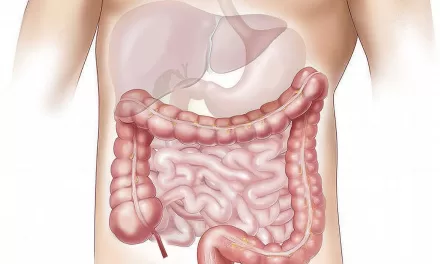British Journal of Cancer Publishes Study on Glycoproteins as Promising Biomarkers
In the relentless battle against ovarian cancer, a disease notorious for its insidious nature and high mortality rates, a groundbreaking study published in the British Journal of Cancer offers a glimmer of hope. Epithelial ovarian cancer (EOC), responsible for a significant number of deaths among female reproductive system cancers, has long confounded early detection efforts due to its nonspecific symptoms and elusive presentation.
The study, conducted by a team of researchers, explores the potential utility of glycoproteins as biomarkers for the early detection of EOC. Unlike current diagnostic methods, which often lack specificity and sensitivity in detecting early-stage EOC, this innovative approach holds promise for revolutionizing ovarian cancer diagnosis through a simple blood test.
Current diagnostic protocols rely on a combination of imaging and blood tests for CA-125, a surface protein shed by EOC cells. However, these methods fall short, with approximately 20% of EOC cases exhibiting normal CA-125 levels and non-cancerous conditions sometimes triggering false alarms. As a result, early-stage EOC often goes undetected, with potentially life-saving interventions delayed.
The study employed a sophisticated case-control design, integrating mass spectrometry analysis of serum glycoproteins with artificial intelligence (AI) algorithms to identify biomarkers capable of distinguishing EOC from other conditions and differentiating early from late-stage disease.
Remarkably, the researchers identified 27 differential biomarkers, including alpha-1-antichymotrypsin, alpha-1-acid glycoprotein 1, and immunoglobulin G (IgG), associated with ovarian cancer. Incorporating these glycoproteins into a novel classification system yielded impressive accuracy, sensitivity, and specificity exceeding 85%, with performance improving as cancer stage advanced.
Moreover, the study revealed that fucosylation, a process involving the addition of fucose residues to glycoproteins, increased progressively with EOC stage, offering valuable insights into disease progression. A model classifier based on these fucosylated glycopeptides demonstrated exceptional accuracy and sensitivity, particularly in detecting late-stage and metastatic EOC.
Additionally, alterations in serum cytokines, including interleukin 6 (IL-6), IL-8, IL-10, and monocyte chemoattractant protein 1 (MCP-1), were observed in late-stage EOC, further highlighting the complex interplay between immune response and glycosylation processes in ovarian cancer.
Dr. Elena Rodriguez, lead author of the study, emphasized the transformative potential of these findings, stating, “Our research represents a significant advancement in the quest for early detection and accurate staging of ovarian cancer. By harnessing the power of blood glycoproteins as biomarkers, we aim to revolutionize ovarian cancer diagnosis and improve patient outcomes.”
While acknowledging the need for further validation in larger, prospective cohorts, the researchers express optimism regarding the future clinical translation of these findings. With continued research and refinement, the development of a blood-based test for early detection of ovarian cancer may soon become a reality, offering renewed hope to women worldwide in the fight against this devastating disease.












